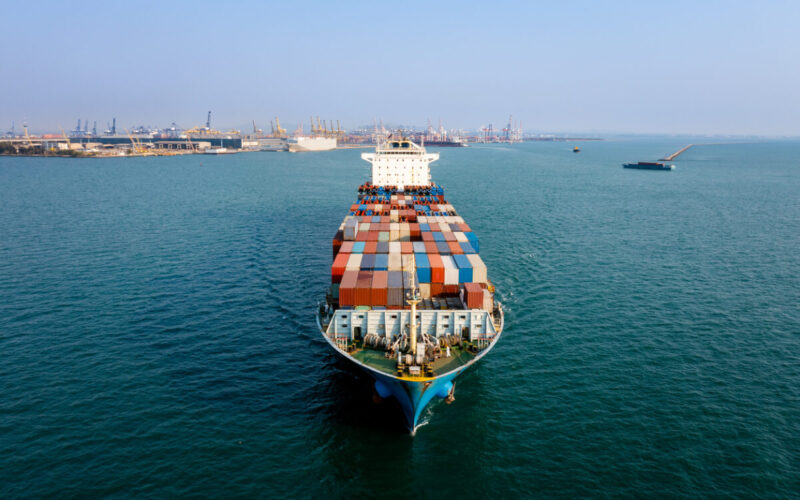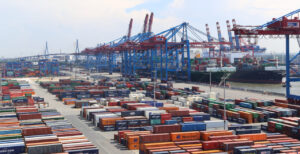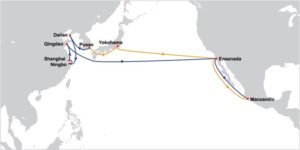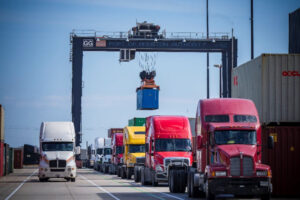The United Nations Conference on Trade and Development (UNCTAD) has reported that vital maritime routes in the Red Sea, Black Sea, and Panama Canal are all under threat.
According to UNCTAD, the disruption of these routes would have far-reaching effects on inflation, food security, and energy supply.
Recent attacks on commercial vessels in the Red Sea have impacted transportation via the Suez Canal, compounding existing geopolitical and climate-related problems for global commerce and supply chains, according to a new UNCTAD report.
The Red Sea crisis exacerbates the existing disturbances in the Black Sea caused by the war in Ukraine, which has resulted in shifts in oil and grain trade routes and disrupted traditional patterns.
Furthermore, the Panama Canal, a crucial artery connecting the Atlantic and Pacific oceans, is facing a unique difficulty. Dwindling water levels have raised concerns about the long-term viability of global supply systems, underscoring the fragility of the world’s trade infrastructure.
UNCTAD estimates that transits through the Suez Canal have declined by 42 per cent since its peak. With prominent shipping firms temporarily suspending Suez transits, weekly containership transits have fallen by 67 per cent, while container carrying capacity, tanker transits, and gas carriers have also suffered significant declines.
Meanwhile, overall transits via the Panama Canal dropped by 49 per cent from their high.
READ: Red Sea: FMC warns of looming economic fallout
Ships are bypassing the Suez and Panama canals, opting for alternate routes. This combination results in longer freight transit lengths, higher trade expenses, and insurance rates.
Furthermore, GHG emissions are increasing due to the need to travel longer distances at higher speeds to compensate for the diversions.
The Panama Canal is especially significant for foreign trade with countries on South America’s West Coast.
According to UNCTAD, approximately 26 per cent of Ecuador’s commerce volumes pass via the canal. Chile and Peru each have a stake of about 22 per cent.
Several East African countries rely heavily on foreign trade through the Suez Canal. UNCTAD revealed the canal that connects the Mediterranean Sea to the Red Sea accounts for 31 per cent and 34 per cent of Djibouti’s and Sudan’s foreign trade volume, respectively.
Long-term container shipping interruptions can undermine global supply chains, delay delivery, increase costs, and lead to inflation, according to UNCTAD. Consumers will see the full impact of increasing freight charges within a year.
READ: Red Sea Gateway Terminal completes 6 million TEU expansion
In addition, almost no liquified natural gas-carrying vessels are using the Suez Canal at present. This is directly impacting energy supplies and prices, especially in Europe.
The crisis could also impact global food prices, with longer distances and higher freight rates potentially cascading into increased costs.
UNCTAD reported that for more than a decade the shipping sector has reduced its speeds to save money on fuel and minimise its carbon footprint.
However, delays in critical trade routes such as the Red Sea and Suez Canal, combined with issues impacting the Panama Canal and the Black Sea, are causing increasing vessel speeds to meet timetables, resulting in higher fuel consumption and GHG emissions.
According to UNCTAD, these variables might increase GHG emissions by up to 70 per cent for a round-trip from Singapore to Rotterdam.









